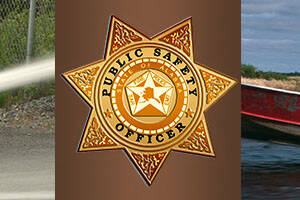By Joel Hard
Since statehood, law enforcement in rural Alaska has not received the resources for adequate police protection. The State of Alaska started the Village Public Safety Officer or VPSO program in 1979 to provide a first responder to Alaska’s smallest communities. The VPSO program is critical to rural public safety and the Department of Public Safety’s success. The program is a meaningful commitment to provide safer, more just communities, and after more than 40 years there is much to proudly look back upon. Over 1,000 men and women of dedication, honor and pride have stepped up to serve an innovative role of law enforcement, fire prevention, search and rescue and emergency medical responder. But the program hasn’t always received the attention it should or been appreciated for its important purpose in remote villages, and we must rethink the limitations to realize the program’s full potential.
When creating this remote service, the ideal was a unique brand of officers intended to bridge Alaska State Troopers and villages with culturally sensitive individuals knowledgeable of local people and customs, who would leverage our uniformed presence, but not serve as replacements for state troopers in all matters. We didn’t understand then as we do now the burdens that placed on these men and women, often working alone, and balancing tribal interests and expectations with the State’s public safety responsibility. We didn’t recognize the greater support they needed, or how the program would limit its own utility. We must better understand what is needed and re-imagine a more flexible program to better support VPSOs for the benefit of the villages in which they live and work.
No policing organization can deliver on its fundamental public safety promise to communities without strong, sincere relationships built on mutual trust and respect. These are too easily eluded by isolation, and inflexibility of a centralized law enforcement bureaucracy. For truly safer communities served by trained representatives of public safety — trooper and VPSO — the VPSO program is desperate for a tangible demonstration of re-commitment to rural public safety. This has been an expectation of Gov. Mike Dunleavy and was promised by Department of Public Safety Commissioner Jim Cockrell. The Legislature is also taking up the same charge and is proposing meaningful changes in Senate Bill 81 and its companion in the House, HB 313.
A more robust program is needed to allow the department to better support its deep commitment to rural Alaska. A program free of misguided limitations that have frustrated and restrained the VPSO program. No longer a program that requires villages to provide infrastructure to participate, but one that opens opportunities for housing and public safety offices to support VPSOs and responding state troopers where they are most needed. A program retooled to focus on each village’s public safety needs, to develop in partnership, grants that more effectively meet varying local public safety challenges.
An improved program can emerge that encourages more than one VPSO in a village for officer safety, wellness and retention. One that provides certification distinctions for what a VPSO might be expected to be trained and approved to perform, so a region or village can better advocate what it believes it needs to address its specific concerns. A broader program that allows funding for equipment, supplies and services to support villages in ways we haven’t previously considered. Re-imagining solutions which directly impact village public safety and reduce rural crime. In these remote places — and in all places — we must make investments in prevention. Building such program investments through greater flexibility will ultimately help villages become safer.
We can’t fully know what this might look like, understand from where resources might come, or how long it will take to get there until we engage villages and regions in these discussions. With all state services, it is the Legislature’s responsibility to decide what is appropriate and possible to fund, but we will all better understand what has been missed. There is no doubt we will need many more VPSOs and the governor’s proposed budget reflects that reality. But a more flexible program in legislation is needed to provide greater support to VPSOs for their essential piece of DPS’s challenging responsibilities in rural Alaska.
Joel Hard is the director of Village Public Safety Officer Operations at the Alaska Department of Public Safety. Joel worked for the Alaska State Troopers and Division of Fish and Wildlife Protection for 22 years before retiring in 2003.
